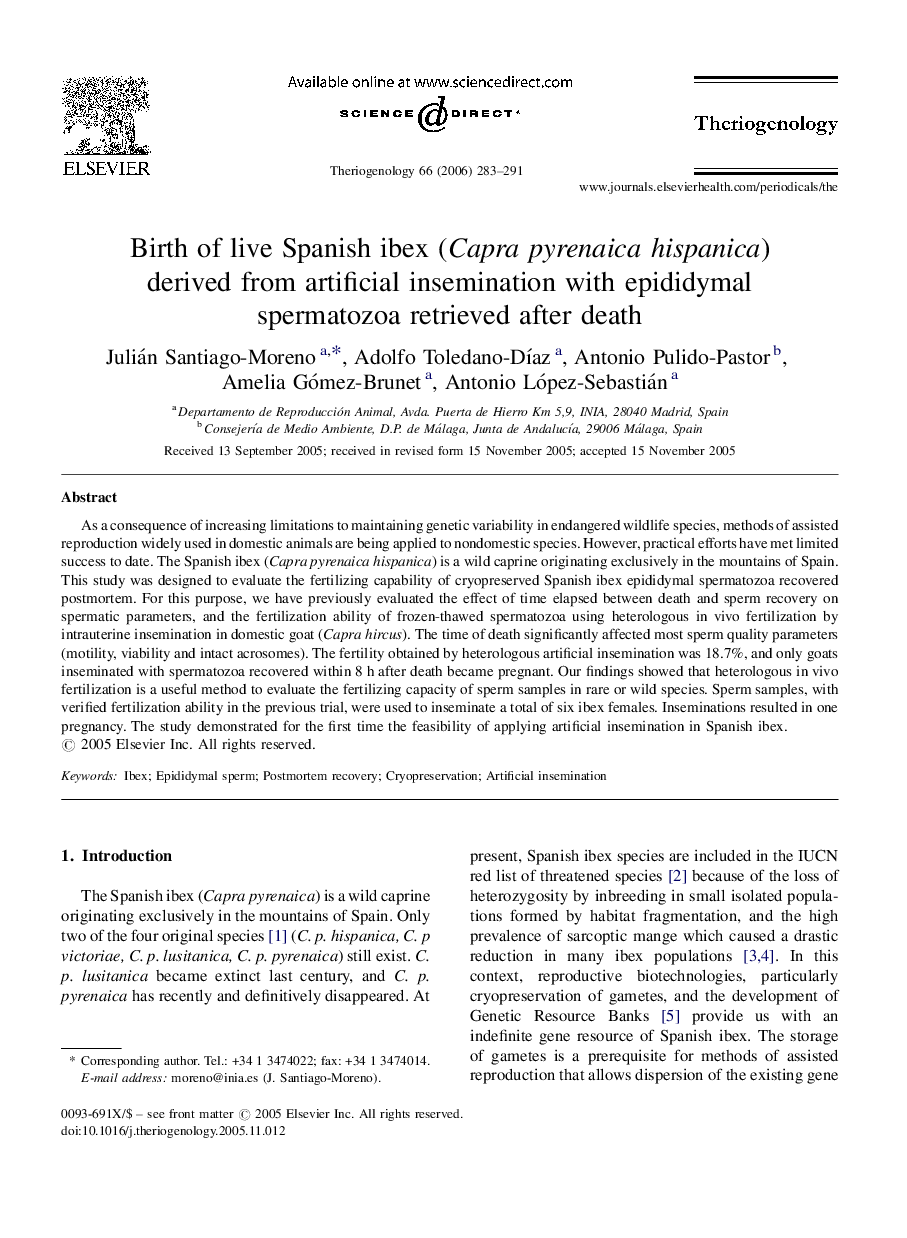| Article ID | Journal | Published Year | Pages | File Type |
|---|---|---|---|---|
| 2097078 | Theriogenology | 2006 | 9 Pages |
As a consequence of increasing limitations to maintaining genetic variability in endangered wildlife species, methods of assisted reproduction widely used in domestic animals are being applied to nondomestic species. However, practical efforts have met limited success to date. The Spanish ibex (Capra pyrenaica hispanica) is a wild caprine originating exclusively in the mountains of Spain. This study was designed to evaluate the fertilizing capability of cryopreserved Spanish ibex epididymal spermatozoa recovered postmortem. For this purpose, we have previously evaluated the effect of time elapsed between death and sperm recovery on spermatic parameters, and the fertilization ability of frozen-thawed spermatozoa using heterologous in vivo fertilization by intrauterine insemination in domestic goat (Capra hircus). The time of death significantly affected most sperm quality parameters (motility, viability and intact acrosomes). The fertility obtained by heterologous artificial insemination was 18.7%, and only goats inseminated with spermatozoa recovered within 8 h after death became pregnant. Our findings showed that heterologous in vivo fertilization is a useful method to evaluate the fertilizing capacity of sperm samples in rare or wild species. Sperm samples, with verified fertilization ability in the previous trial, were used to inseminate a total of six ibex females. Inseminations resulted in one pregnancy. The study demonstrated for the first time the feasibility of applying artificial insemination in Spanish ibex.
